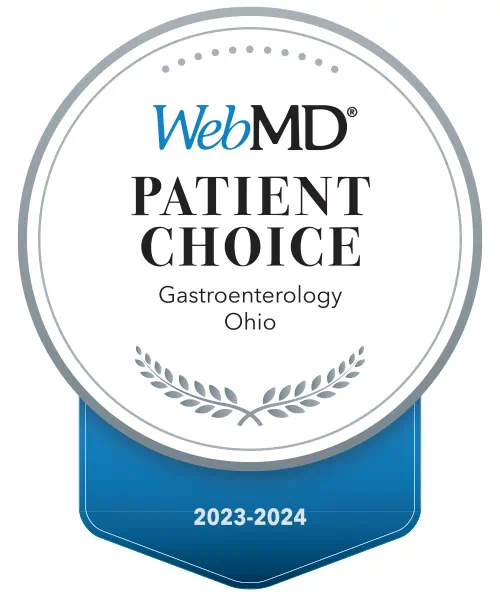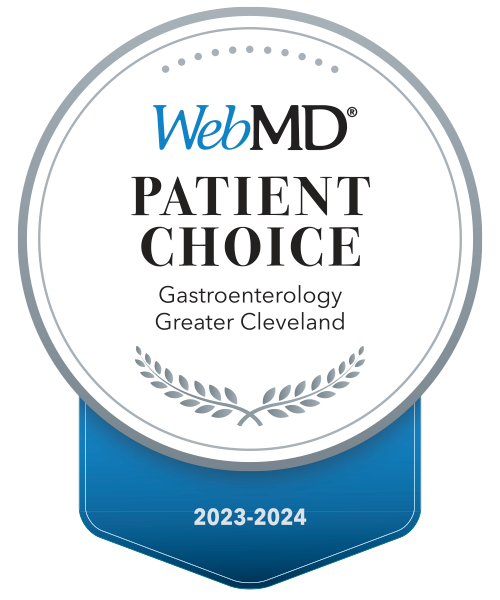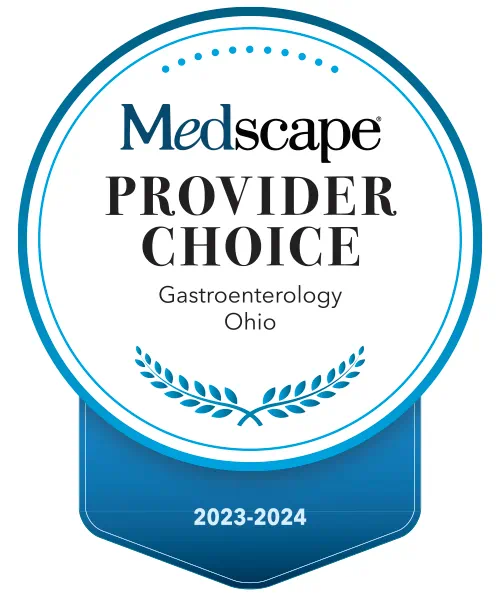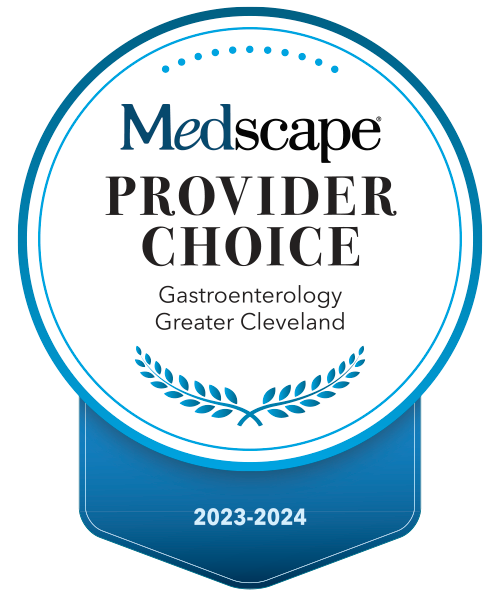Diverticulitis
Diverticula are pockets or bulges that can form in the walls of the digestive tract, most often in the colon. The development of diverticula (diverticulosis) is common, particularly after age 40, and usually does not cause problems. However, sometimes diverticula can be become inflamed and infected, leading to uncomfortable and even dangerous symptoms: this condition is called diverticulitis or colonic diverticulitis. If there is no inflammation or infection, the term colonic diverticulosis should be used.
Your health is important. Get expert care.
Offering in-person and virtual visits. Call 855-780-8088 today to see which option is right for you.
Symptoms of Diverticulitis
Symptoms of diverticulitis can include:
- Severe or constant abdominal pain, usually on the lower left side
- Abdominal tenderness
- Swelling or bloating
- Nausea and vomiting
- Fever and chills
- Constipation or, less commonly, diarrhea
- Blood in the stool
- Rectal bleeding
Causes of Diverticulitis
Scientists do not yet have a full understanding of the causes of diverticulosis. The development of diverticula (diverticulosis) may be an inherited trait that runs in families. Each diverticulum tends to form like a little hernia of the bowel wall located at the opening of a penetrating vessel. One theory that has yet to be proven is that insufficient dietary fiber can cause a buildup of waste (constipation) in the colon that can lead to diverticulosis. According to the theory, the extra strain on the colon walls that accompanies constipation may cause diverticula to form in weak sections of the colon.
Diverticulosis may lead to diverticulitis when diverticula become blocked with feces, resulting in infection caused by the bacteria contained within the feces.
Risk factors for developing diverticulitis include the following:
- Age: The chance of developing diverticulitis increases with age, particularly after age 40.
- Obesity: Being seriously overweight increases a person’s odds of developing diverticulitis.
- Smoking: Cigarette smokers are more likely than nonsmokers to develop diverticulitis.
- Lack of exercise: Regular exercise appears to lower risk of diverticulitis.
- Diets that are low in fiber and high in animal fat and red meat: A low-fiber diet combined with the high consumption of animal fat and red meat may increase risk.
- Taking certain medications: Certain drugs are associated with a heightened risk of diverticulitis. These include anti-inflammatory drugs such as ibuprofen (Advil, Motrin IB, others) and naproxen sodium (Aleve); opioids; and steroids.
How Is Diverticulitis Diagnosed?
A diverticulitis diagnosis often occurs during an acute attack. Because a number of medical issues can cause abdominal pain and discomfort, your doctor will need to consider other causes of your symptoms. Your doctor will begin with a physical examination, including checking your abdomen for tenderness. In addition, women will often have a pelvic examination to check for signs of pelvic disease.
Following history and physical examination, one or more of the following tests will be ordered:
- Blood and urine tests to check for signs of infection
- Liver enzyme test to rule out liver-related causes of abdominal pain
- Stool test to rule out infection in people with diarrhea
- CT scan, which can be used to identify inflamed or infected pouches, thereby confirm diverticulitis diagnosis; in addition, a CT scan show the severity of the diverticulitis and help guide treatment
- Pregnancy test for women of childbearing age to rule out pregnancy as a cause of abdominal discomfort
Diverticulitis Treatment
Diverticulitis can be simple (uncomplicated) and complicated. As its name indicates, uncomplicated diverticulitis does not have any associated complications. Complicated diverticulitis is associated with the formation of fistulas, bowel obstructions, abscesses or frank perforations. As such, treatment of diverticulitis depends on if the condition is uncomplicated or complicated, as well as the severity of the symptoms.
Diverticulitis and Diet
People often wonder what foods trigger diverticulitis. Years ago, many doctors thought that eating corn, popcorn, seeds, and nuts could inflame diverticula, but subsequent research has not supported that claim.
Because constipation often contributes to the development of diverticula, doctors recommend eating a diet rich in fiber (about 25 to 35 grams per day) to help prevent diverticulosis, diverticulitis and related conditions of the digestive tract. The typical “diverticulitis diet” recommended by doctors includes such minimally processed plant foods as:
- Whole grain foods: brown rice, oatmeal, breads, pasta, crackers and barley
- Berries and other fruit
- Vegetables: broccoli, spinach, carrots, cabbage, squash, asparagus and beans
- Legumes, including lentils and nuts
- Bran products made from rice, corn, wheat, oats, barley, rye and millet
Common foods that may increase the risk of developing diverticulosis or trigger diverticulosis symptoms are those that are low in fiber and/or high in sugar, including:
- Red meats
- Processed meats
- Fried foods
- Full-fat dairy products




University Hospitals has been recognized with a 2023-2024 WebMD Choice Award for excellence in Gastroenterology. The award is the only health system recognition program based solely on the preferences of patients and providers at the local and state level.
Diverticulitis Flare Up: More Conservative Treatment Now Recommended
While patients can develop severe complications from diverticulitis that require surgery, doctors have taken a more conservative approach to treating milder cases. New guidelines from the American Gastroenterological Association call for less emphasis on antibiotics and surgery for mild cases…
Read More

